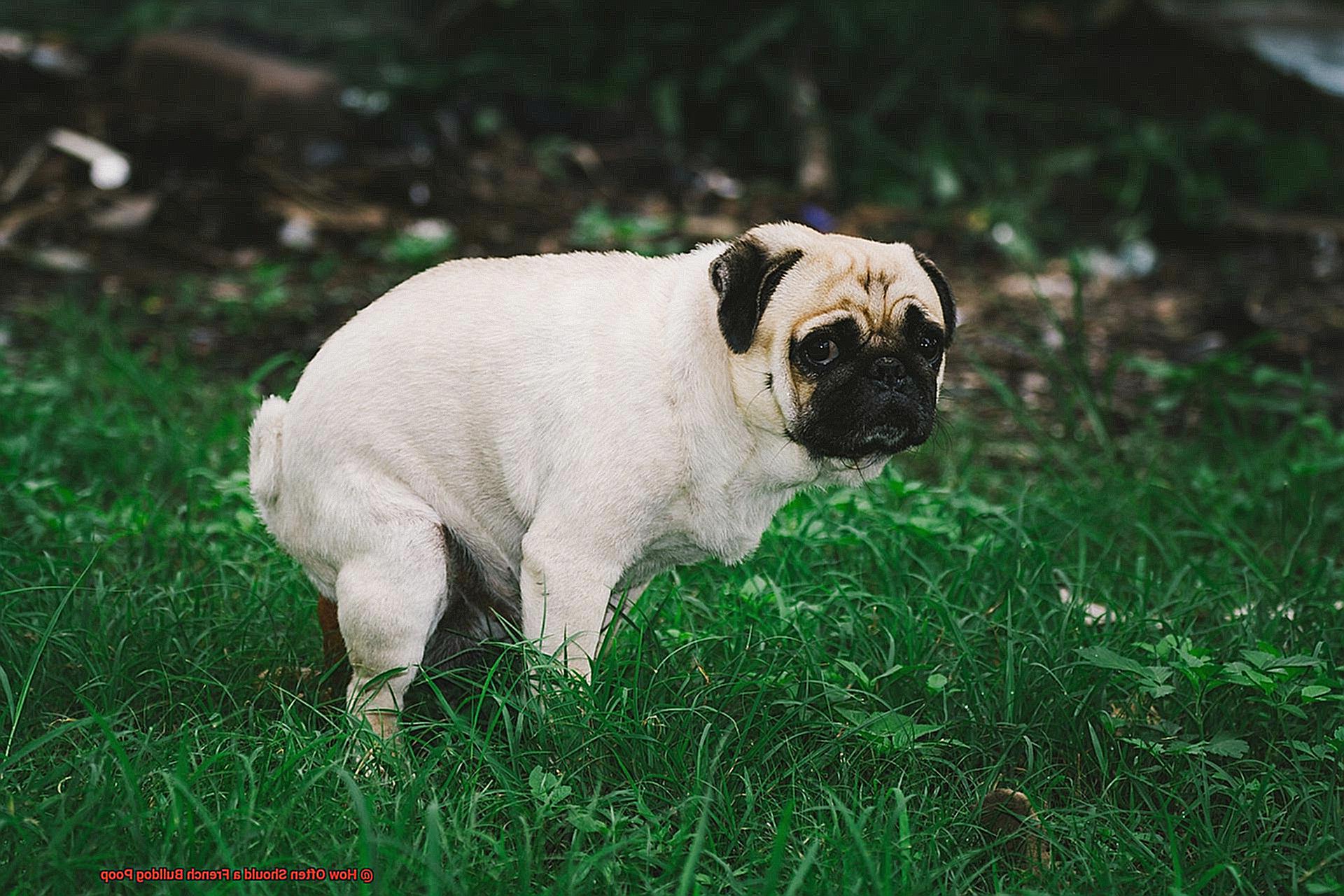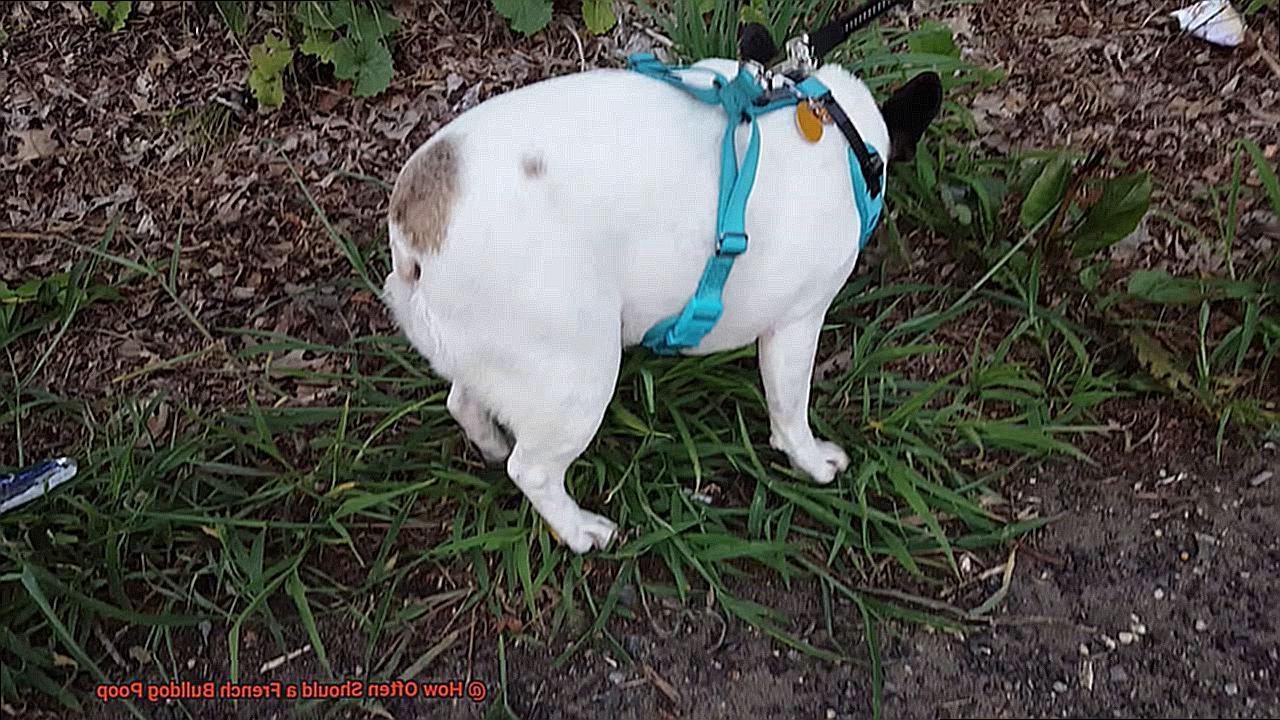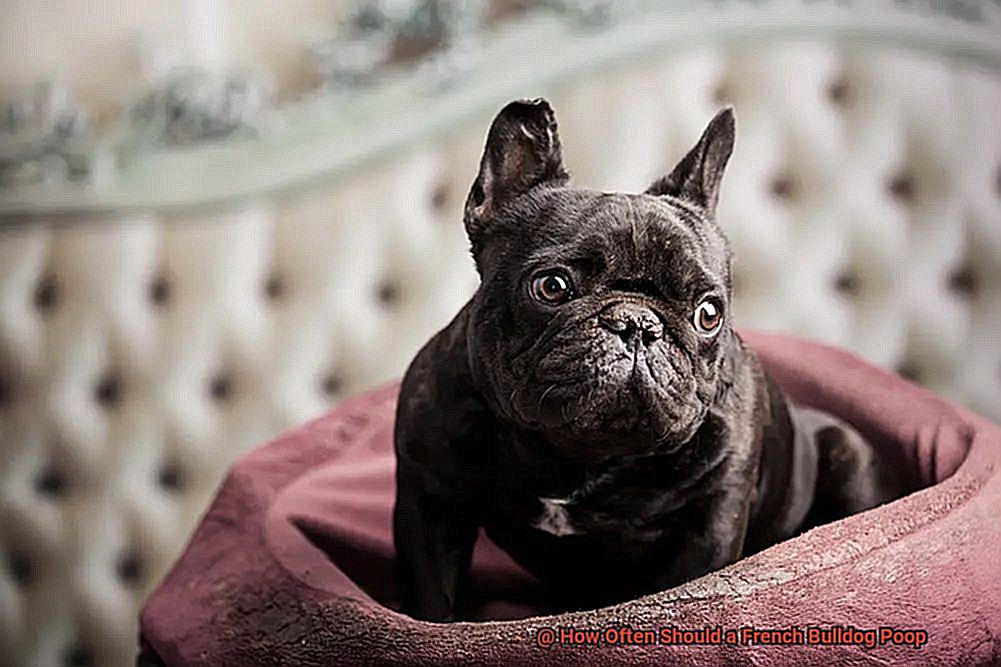How Often Should a French Bulldog Poop?
Do you have the pleasure of being a French Bulldog parent? Do you know how often your furry friend should be doing their business? It may seem like a small detail, but it can be a crucial indication of your pup’s health. As an expert on these adorable wrinkly pups, I can tell you that having regular bowel movements is essential for maintaining their overall well-being.
French Bulldogs are known for their charming personalities and unique digestive systems that require special attention. While each dog is different, as a general rule, a healthy French Bulldog should have at least one poop per day. Failing to do so could indicate an issue with their diet or even an underlying medical condition.
In this blog post, we will explore the significance of monitoring your French Bulldog’s bathroom habits and what to look for in their poop. We’ll also discuss ways to help them maintain a healthy digestive system and common reasons why French Bulldogs may experience irregular bowel movements. So if you’re a proud Frenchie owner who wants to ensure the health and happiness of your four-legged companion, keep reading to learn more about how often they should poop.

What is Normal for a French Bulldog’s Bowel Movements?
Contents
- 1 What is Normal for a French Bulldog’s Bowel Movements?
- 2 Factors That Impact A French Bulldog’s Poop Frequency
- 3 Signs of Unhealthy Bowel Movements in French Bulldogs
- 4 How to Monitor Your Dog’s Bowel Movements
- 5 Common Causes of Changes in Bowel Movements in French Bulldogs
- 6 When to Contact a Veterinarian
- 7 Conclusion
Typically, a healthy adult French Bulldog should have one to three bowel movements per day, while puppies may need to go up to five times daily. It’s important to note that each dog is unique, and their individual diet and exercise habits can affect their bowel movement frequency.
But what about consistency? The ideal poop should be firm, moist, and easily picked up with a poop bag. The color should be consistent too – usually brown or tan. Any changes in your dog’s bowel movements such as loose stools or unusual colors may indicate an underlying health problem.
It’s also important to observe your dog’s behavior during elimination. If your dog appears uncomfortable or struggles to poop, it could be a sign of constipation and digestive issues. On the other hand, straining to poop could indicate diarrhea or other gastrointestinal problems.
To help promote healthy digestion in your French Bulldog, make sure they’re properly hydrated and receiving a balanced diet. Regular exercise can also help keep their digestive system functioning correctly.
Always be vigilant about your dog’s pooping habits and consult with your veterinarian if you notice any changes.
Factors That Impact A French Bulldog’s Poop Frequency
Understanding the factors that impact your French Bulldog’s poop frequency is crucial to ensure their digestive health and overall wellbeing. In this article, we will explore the four main factors that can influence your French Bulldog’s poop frequency.

First and foremost, diet is a critical factor that can significantly impact your French Bulldog’s poop frequency. Feeding your dog high-quality, well-balanced food promotes regular bowel movements. Conversely, feeding them low-quality food or overfeeding can lead to constipation or diarrhea, which can affect your dog’s poop frequency.
Age is another significant factor that plays a vital role in determining your French Bulldog’s poop frequency. Young puppies typically have more frequent bowel movements due to their developing digestive systems. As they grow and mature, their bowel movements will become less frequent. Senior dogs, on the other hand, may experience constipation due to age-related changes in their digestive system.
Exercise is essential for your French Bulldog’s overall health, including their digestive health. Regular exercise promotes healthy digestion and can prevent constipation or irregular bowel movements. However, excessive exercise or strenuous activity can also cause diarrhea or loose stools.
Lastly, certain medical conditions can affect your dog’s poop frequency. Dogs with gastrointestinal issues such as inflammatory bowel disease may experience more frequent or irregular bowel movements. Parasites or infections can also cause diarrhea or other digestive issues.
Signs of Unhealthy Bowel Movements in French Bulldogs
The state of their digestive system can have a significant impact on their overall health and happiness. Here are some signs of unhealthy bowel movements you should keep an eye out for:

Firstly, if your French Bulldog is experiencing diarrhea or constipation, this could be a red flag indicating an underlying health issue. Diarrhea can be caused by various factors such as allergies, infections or parasites. Conversely, constipation can stem from a lack of fiber in their diet or dehydration.
Think of it like a congestion on the freeway – when there’s a blockage or insufficient fiber in their diet, your dog’s digestive system becomes congested, resulting in backed-up stool that could cause discomfort and pain for your furry friend.

Another warning sign to look out for is blood in your French Bulldog’s stool. This could indicate a severe issue like colitis or cancer. It’s akin to seeing red flags on the road – an urgent warning that needs immediate attention.
Lastly, if your French Bulldog is straining excessively or taking longer than usual to pass stool, this could also be an indication of an underlying issue. Imagine being stuck in traffic and running late for an appointment – that’s how your furry friend feels when they’re struggling to go potty.
How to Monitor Your Dog’s Bowel Movements
One way to do this is by monitoring their bowel movements. Here are five essential steps to help you keep track of your dog’s poop and ensure that they’re feeling their best.
Step 1: Observe the frequency and consistency of their poop
It’s essential to keep track of how often your French Bulldog poops, as well as the consistency of their stool. Adult dogs should go at least once a day, while puppies might need to go up to five times a day. The poop should be firm but not too hard or too soft.
Step 2: Check for any abnormalities in their poop
While monitoring your dog’s poop, look out for any abnormalities such as blood, mucus, or worms. These could be signs of an underlying health issue that needs attention right away. If you see any of these things, it’s time to call the vet.
Step 3: Keep track of their eating habits

Your French Bulldog’s eating habits can also affect their bowel movements. If you notice any changes in their appetite or if they are not eating as they usually do, it could be a sign of an underlying health issue.
Step 4: Maintain a regular feeding schedule
Feeding your French Bulldog at regular intervals can help regulate their bowel movements. Try to feed them at the same time every day to establish a routine.
Step 5: Choose high-quality food with appropriate fiber content
The type of food you feed your French Bulldog can significantly affect their bowel movements. A diet that is high in fiber can help regulate their bowel movements and prevent constipation. Make sure to choose a high-quality food that is appropriate for your dog’s age and activity level.
By following these simple steps, you’ll be able to monitor your French Bulldog’s bowel movements like a pro. And if you do notice any changes or issues, don’t hesitate to reach out to your vet for help.
Common Causes of Changes in Bowel Movements in French Bulldogs
If so, you know how much these little pups mean to us, and we want to make sure they’re healthy and happy. A sensitive digestive system is common in French Bulldogs, so it’s essential to be aware of what can cause changes in their bowel movements.
One of the most common causes of digestive issues is a sudden change in your furry friend’s diet. If you switch their food abruptly, it can lead to an upset stomach and diarrhea. Instead, gradually introduce new food over several days to avoid any discomfort.
Stress and anxiety can also wreak havoc on your French Bulldog’s digestive system. Their sensitive nature makes them prone to anxiety from various stimuli like changes in their environment, separation anxiety, or loud noises, leading to constipation or diarrhea.
Have you noticed your Frenchie chewing on foreign objects like toys or bones? While it may seem harmless, ingesting these items can cause blockages or irritation in their digestive system, leading to diarrhea or constipation. Monitor what they’re chewing on and avoid anything that could be harmful.
Certain medications or medical conditions like parasites, infections, or inflammatory bowel disease can also cause changes in bowel movements. If you’re concerned about any persistent issues or symptoms, consulting with your veterinarian is the best course of action.
It’s essential to keep an eye on your French Bulldog’s bowel movements regularly and make note of any changes. As responsible pet parents, we need to pay attention to our pup’s diet, stress levels, and chewing habits.
When to Contact a Veterinarian
One aspect of their health that should not be overlooked is their bowel movements. While it may not be the most glamorous topic, it is an essential one to pay attention to. In this post, we’ll be discussing when to contact a veterinarian regarding your French Bulldog’s bowel movements.
Firstly, if you notice any sudden changes in your dog’s poop habits, don’t ignore them. Pay attention to the frequency and consistency of their stool as it could indicate an underlying health issue. Remember, even the slightest change in your Frenchie’s bowel movements could be a red flag signaling that something may be wrong. In such cases, it’s always better to be safe than sorry. So, if you notice any sudden changes, contact your veterinarian immediately for guidance.
If your French Bulldog is experiencing diarrhea or constipation for more than 24 hours, it’s crucial to seek veterinary care without delay. These conditions can lead to dehydration and other complications if left untreated. Your veterinarian can help diagnose the underlying issue and provide treatment options to get your furry friend back on track.
Another reason to contact a veterinarian is if you notice blood or mucus in your French Bulldog’s stool. This could be a sign of a gastrointestinal infection or inflammatory bowel disease. Don’t ignore this warning sign and hope it will go away on its own – contact your veterinarian immediately for proper diagnosis and treatment.
Finally, if your dog appears lethargic, has a loss of appetite, or is vomiting along with their abnormal bowel movements, it’s important to seek veterinary attention right away. These symptoms could indicate a more serious health issue and should not be ignored.
Conclusion
As a French Bulldog parent, it’s crucial to keep an eye on your furry friend’s bowel movements. Regular pooping is essential for their overall health and well-being. As an expert on these lovable wrinkly pups, I can confirm that having regular bowel movements is vital for ensuring that they’re happy and healthy.
Typically, a healthy French Bulldog should poop at least once a day. However, each dog has unique needs, and their diet and exercise habits can affect their bowel movement frequency. During elimination, observe your dog’s behavior and check for any abnormalities in their poop.
Several factors such as diet, age, exercise, and medical conditions can significantly impact your French Bulldog’s poop frequency. Understanding these factors is crucial to ensure their digestive health and overall well-being.
If you notice any changes or abnormal behavior in regards to your French Bulldog’s poop habits, don’t hesitate to contact your veterinarian for guidance. By monitoring your furry friend’s bowel movements regularly and being aware of potential issues, you can ensure that they stay healthy and happy.
Remember to keep track of how often your French Bulldog poops, maintain a regular feeding schedule with high-quality food appropriate for their age and activity level. Monitor their eating habits and chewing habits closely while paying attention to any sudden changes or abnormalities in their stool consistency or color. If necessary, seek veterinary care promptly.




